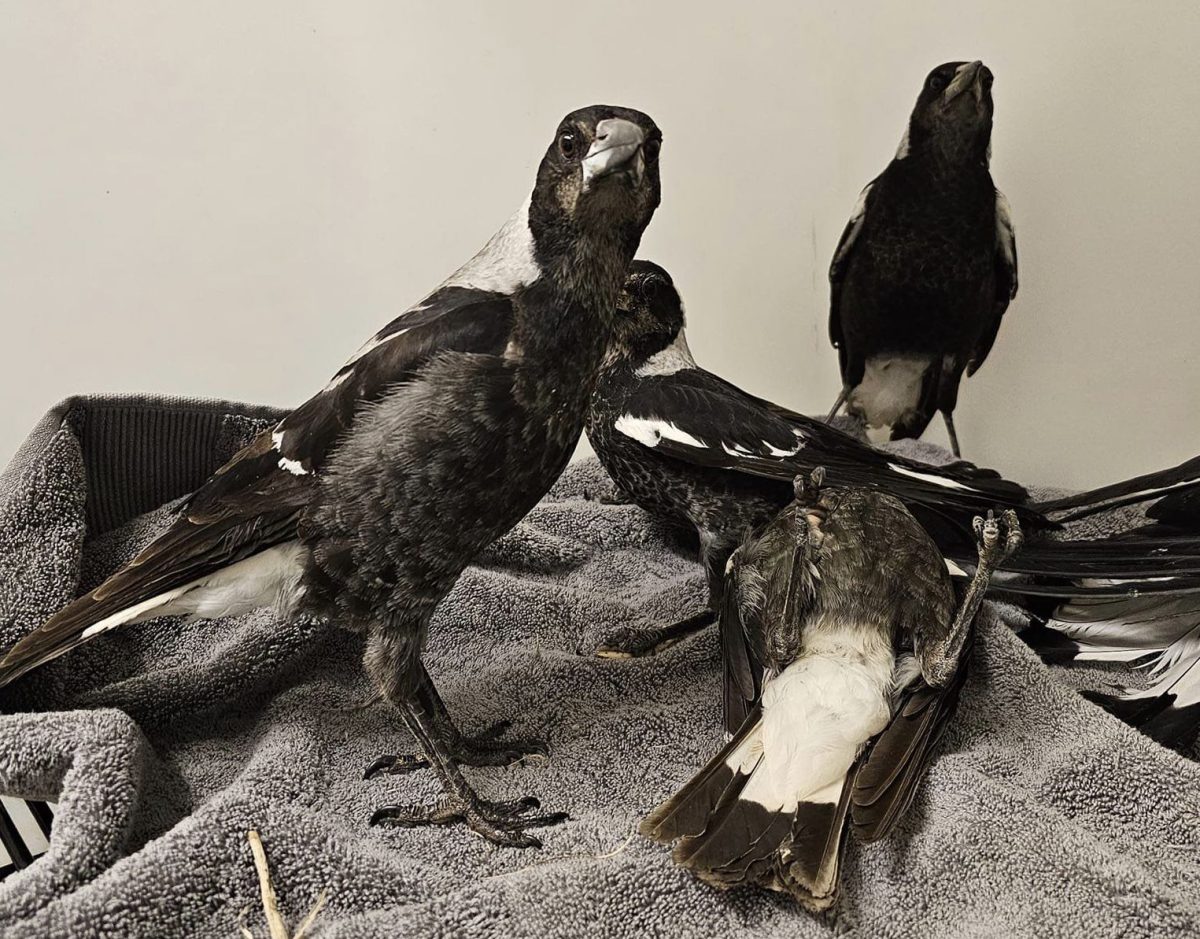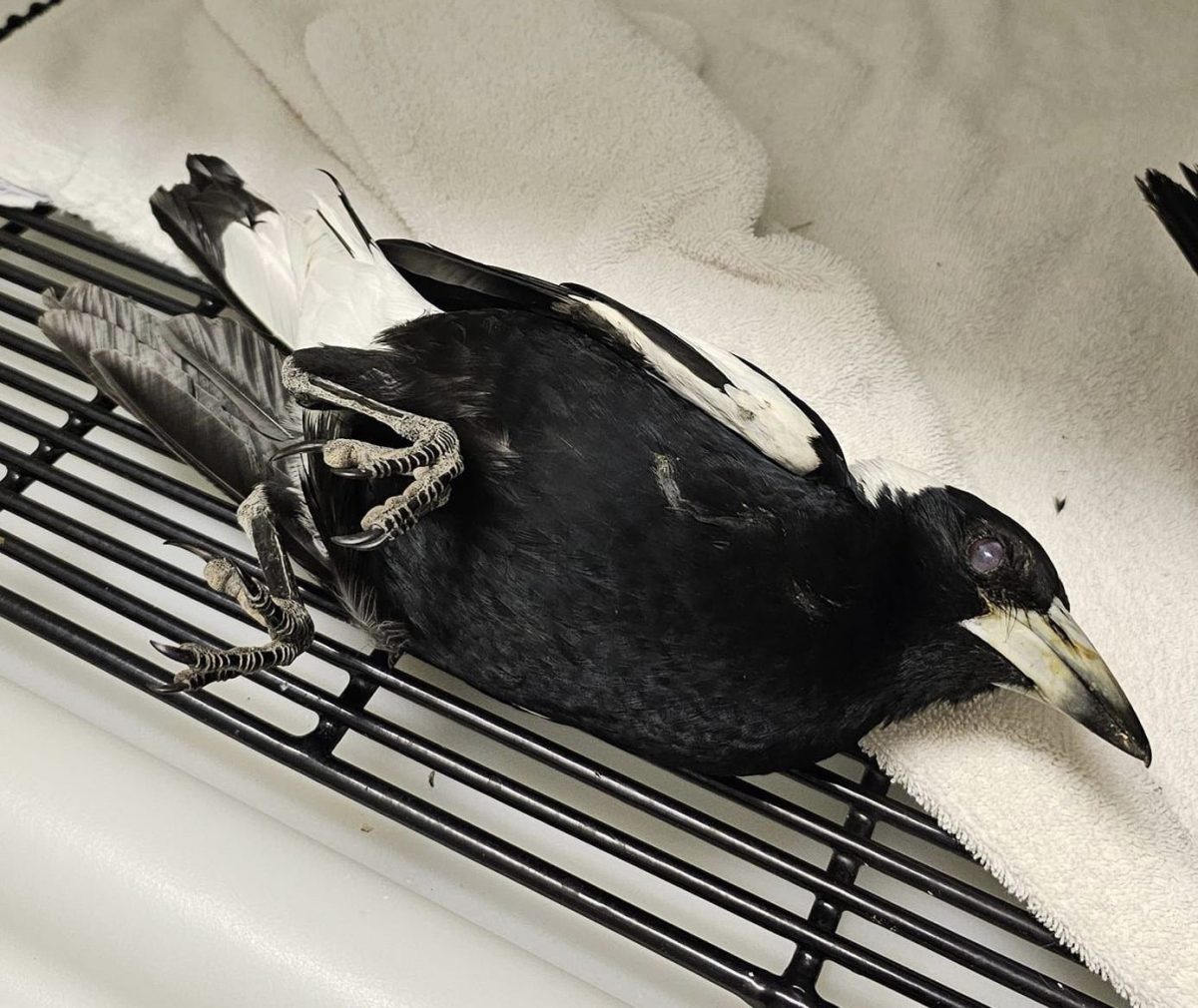
More than 30 magpies were found dead or paralysed across two residential streets in Cootamundra in September. Photo: Cooper St Veterinary Hospital.
Nine magpies that were found dead in suspicious circumstances in Cootamundra in September have returned inconclusive results from testing by the NSW Environment Protection Authority (EPA).
In addition to the nine deceased magpies, a further 30 or so were found weakened or paralysed across two residential streets and taken to a local veterinary hospital.
NSW EPA Director Operations Scott Kidd said while sample analysis collected from several deceased birds detected two banned pesticides, they weren’t at concentrations that would typically cause illness or death.
“Around 30 magpies were found across two residential streets in mid-September and taken to the local Cootamundra veterinary hospital displaying signs of weakness and paralysis. At least nine died at the time, and more than 20 others were taken in by local rescue groups to recover,” Mr Kidd said.
“Test results are inconclusive, and we cannot confirm whether the birds died from a poisoning incident or from naturally occurring diseases such as ‘black and white bird syndrome’, of which paralysis and weakness are primary symptoms.”

The Environment Protection Authority is still yet to determine the cause of the deaths and illnesses. Photo: Cooper St Veterinary Hospital.
Mr Kidd has also ruled out avian influenza as a potential cause for the magpies’ conditions but is urging anyone with any insight about the incident to reach out to the EPA or local police.
“What the testing does show, however, is that chemicals found in the samples have historically been used in two banned pesticides – DDE and dieldrin. This discovery is a serious concern, as the Australian Pesticides and Veterinary Medicines Authority deregistered these two pesticides many years ago,” Mr Kidd said.
The EPA is reminding NSW residents that the use of unregistered pesticides – or the use of any pesticide in a manner that harms non-target animals or plants – can attract penalties of up to $500,000 for an individual and $2,000,000 for a corporation. There are no fines for safe disposal of deregistered pesticides through ChemClear.
Any resident who suspects they may have one or both pesticides in storage should immediately contact ChemClear for safe disposal. The EPA encourages the community to report deliberate or reckless use of pesticides to its 24/7 Environment Line on 131 555 or by emailing [email protected].
“We want to remind the community that using deregistered pesticides is an offence, and heavy penalties apply. Understandably, this incident has been distressing for the community and wildlife carers who responded to and cared for the sick magpies,” Mr Kidd said.







